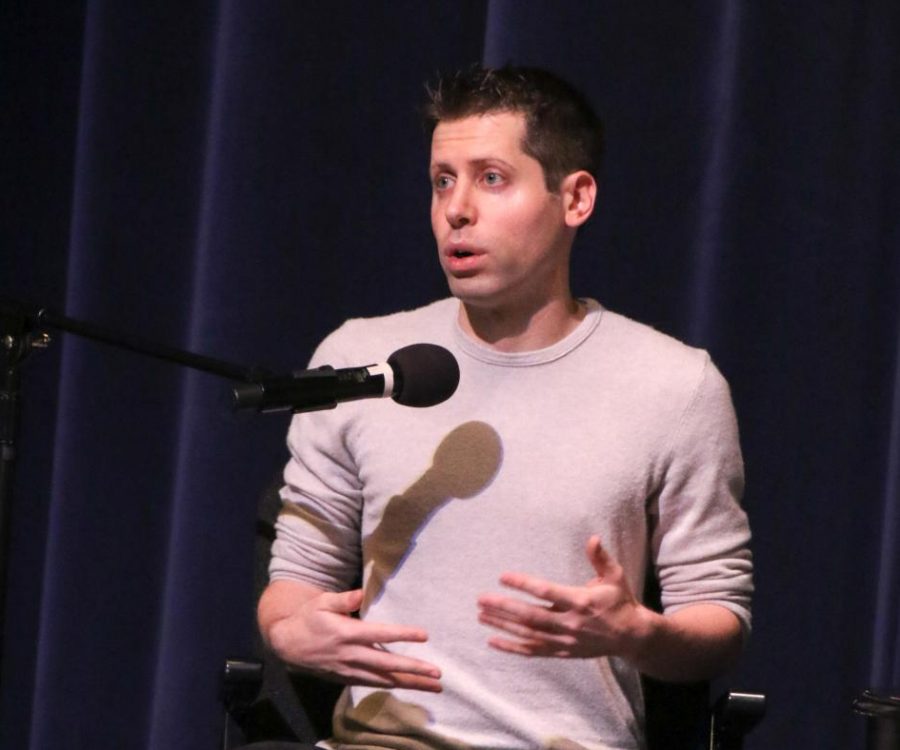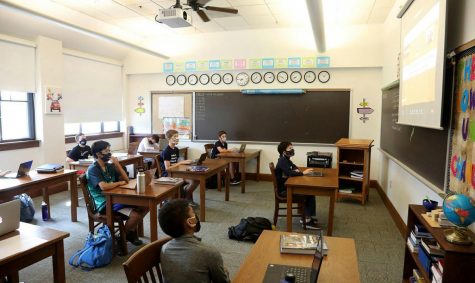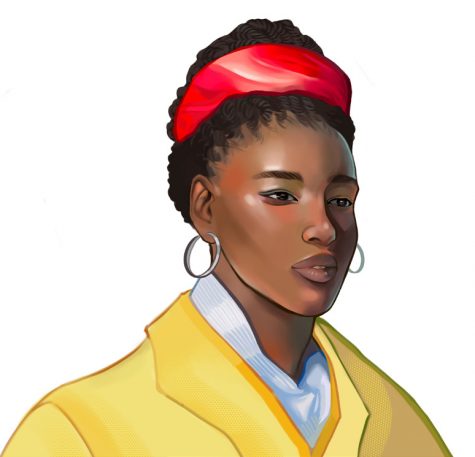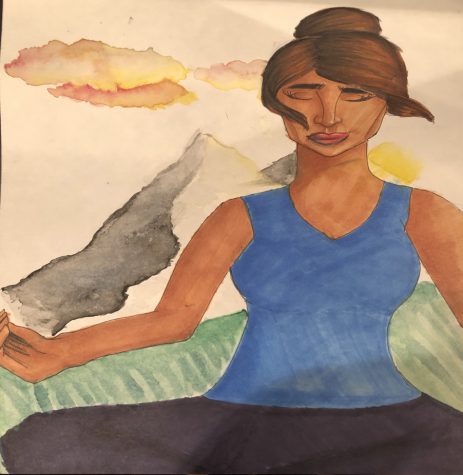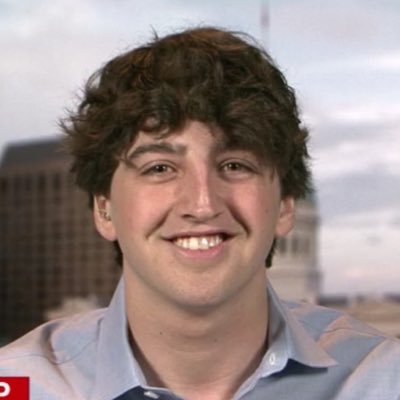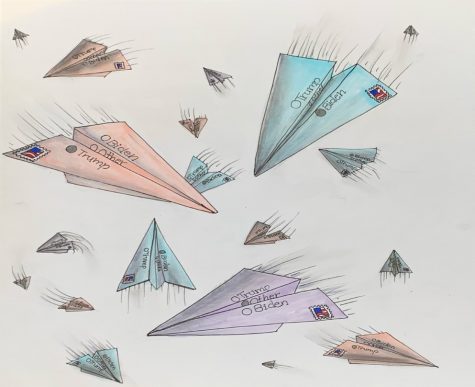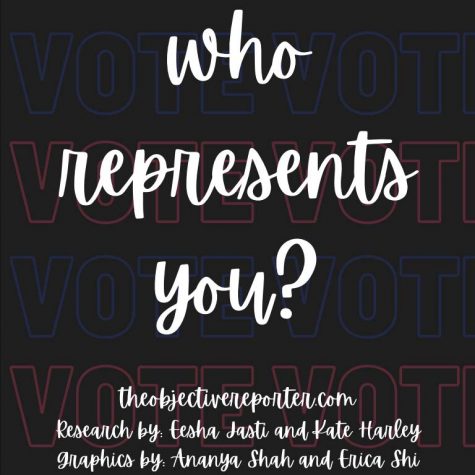Sam Altman: Tech, Politics, and Halo 3
December 10, 2017
Try to think of one original thought. Just one. Pretty hard, right? According to Sam Altman ‘03, president of Y Combinator, a tech company that funds early stage startups, having original ideas is a skill that is seldom taught in school and rarely seen in the general population, but it is one of the most important qualities of being a successful entrepreneur. As Burroughs students and aspiring leaders in our fields, we tend to find that information disheartening. How can we become original thinkers? During Altman’s visit to school and his wide-ranging assembly on Monday, November 27th, he discussed that topic, as well as other important quandaries pertaining to technology, politics, and the future of humanity.
While a Burroughs student, Altman explored a variety of activities and passions. “He was both an official and unofficial student leader,” Mr. Abbott explained in his introduction speech. During his time at Burroughs, he was captain of the water polo team, editor of the yearbook, and founder of the Gay-Straight Alliance. Outside of school, Altman engaged in typical teenage activities, such as playing copious hours of video games and hanging out with friends. He wishes that he had started a business like some current Burroughs students are doing in the Business Club’s MIT Launch Program.
“I got decent grades. I didn’t do anything particularly special,” he remarks. That knowledge may come as a shock; we’re continually inundated with stories of successful people as high school students who played every sport, got perfect grades, and started a nonprofit organization that helped children in Kenya. Instead, Altman says he found success in part by knowing “a little about a lot of things.”
After graduating from Burroughs and briefly attending Stanford University, he found that many of his college classmates seemed glued to one path. At the time, he became sucked into their ways of thinking, and he convinced himself he should pursue investment banking. However, Altman soon realized that career was not what he truly wanted. Instead, he founded Loopt, a social media platform that allows users to see their friends’ locations. At age 19, he dropped out of Stanford to pursue what he truly loved: working with startups.
Altman largely attributes his success to doing what he wanted and letting himself get sucked into situations or companies he did not initially want to be in. He reflected that his daily work is never repetitive, and if it was, he would find something else to do. Every week, Altman has about 800 hours of billable work. He has to pick out of those 800 hours the tasks that he thinks are most worthwhile.
Despite his busy schedule, Altman still finds time to read and hang out with high school friends. In the past two months, his favorite books that he has read have been The Making of the Atomic Bomb and Why Nations Fail. He seems to make sure that even the books he reads reflect his desire to maintain surface level knowledge on a breadth of topics. Over Thanksgiving break, Altman also rekindled friendships with his Burroughs classmates, engaging in Halo 3 gaming sessions like old times. “I’m probably still the best player out of my friends,” he says, adding that he does not play nearly as much as he did in high school.
After his visiting his hometown and Burroughs, Altman planned a trip the Capitol to talk to lawmakers about net neutrality, the concept that Internet service providers should treat all data on the Internet equally. Though his company Y Combinator has been wildly successful, Altman is just as passionate about creating political and social change. He states that global impact is a quality he looks for in the startups he chooses to fund. In addition, Altman started The United Slate to further progressive policy initiatives and fund political candidates who understand technology. Identifying fair economic growth, smarter infrastructure, and affordable housing as some of his key policy goals, Altman hopes that The United Slate and the technology industry in general can help create global change.
“It’s clear that [Altman] wants to have a large and positive impact on the country and world,” says William Howlett ‘18, President of the Business Club. “He is one of the smartest people I’ve ever met and had a fascinating perspective on a wide range of issues. It was an honor to interview him.” When William and his fellow club leaders thought about speakers for this year, Altman was at the top of their list. After corresponding with the alumni office, the administration, and Altman himself, Howlett worked out the best time to interview him.
“Sam is one of the most interesting speakers we’ve had at Burroughs. Not because of his success, but because of his ideas,” Nick Kime ‘18 remarks. “Getting a wide range of knowledge, having original ideas, and doing what you love is advice every Burroughs student could really benefit from.” Though Kime is not a member of the Business Club, his dad is a venture capitalist who has worked on deals with Altman at Cortex Innovation Community in the Central West End. “I was so surprised when I got home and told my dad about him and he said, ‘Oh yeah, Sam!’” Kime reflects.
Mr. Abbott wagered that “every entrepreneur in America would give her or his right arm for five minutes with Sam Altman,” and in a school where students’ schedules are perpetually overflowing, Altman’s interview offered a sliver of relief. We don’t need to be the Student Body President to make a difference in the world. We can simply start with ourselves. So, what’s your original thought for the day?
